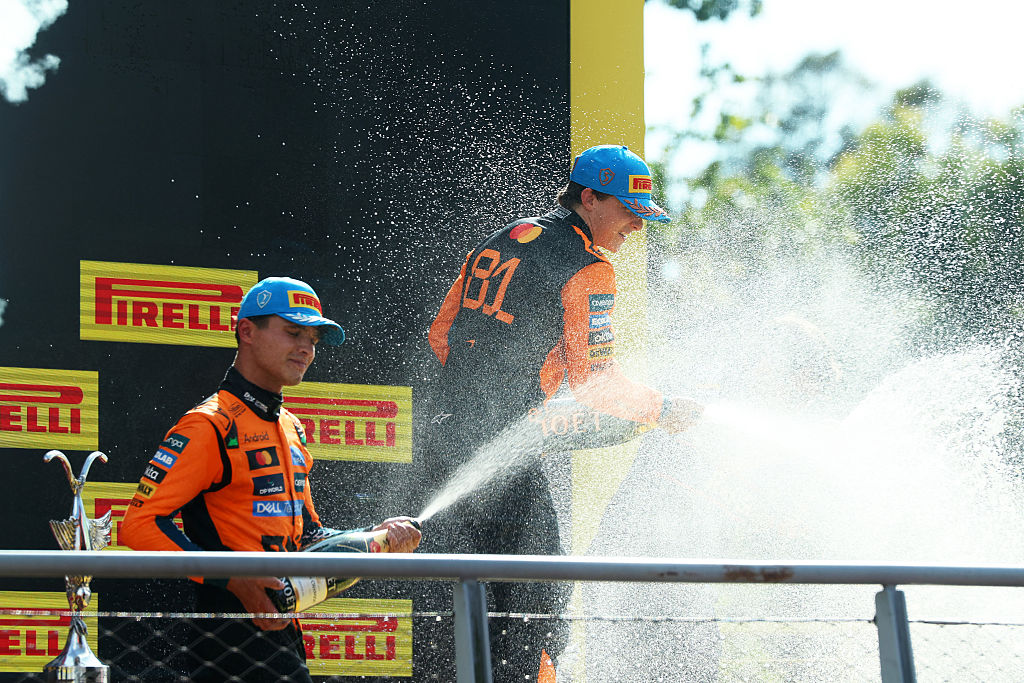Lando Norris could have been in a really bad mood on Sunday night in Monza.
Perhaps he was in one on lap 48 of the Italian Grand Prix, when he suddenly found himself behind teammate Oscar Piastri having been pretty comfortably the lead McLaren for the entire race.
Max Verstappen was miles up the road, already adding to his frustration, and now a three-point gain in the drivers’ championship was set to become a three-point loss. Until his team intervened and ordered Piastri to give up the position.
The slow pit stop that had dropped Norris behind his teammate was certainly not driver error, with a slow left front appearing to be the result of a wheel that wasn’t fully attached initially. The retirement in Zandvoort was also not driver error, and yet Norris could have lost ground on two consecutive weekends, with the second compounding the pain of a week earlier.
But McLaren is in a unique position, and with its two drivers line astern on the track, it could rectify the situation without any risk or costing the team any points.
“I think the pit stop situation is not only a matter of fairness, it’s a matter of consistency with our principles,” team principal Andrea Stella explained. “However the championship goes, what’s important is the championship runs within the principles and the racing fairness we have at McLaren. And that we have created with our drivers.
“The situation whereby we swap our drivers is not only related to the pit stop, it’s also related to the fact that we wanted to sequence the two cars and stop Oscar first and then Lando. This should not have led to a swap of position. It was just done because we were covering [Charles] Leclerc, and at the same time we were waiting until the last possible moment to see if there was a red flag or a safety car.
“So we pursued the team interest to capitalize as much as possible, and in the team interests we had to go first with Oscar and then with Lando. But the clear intent was this is not going to deliver a swap of positions.
“The fact that we went first with Oscar, compounded by the slow pit stop with Lando, led to a swap of positions. And we thought it was absolutely the right thing to go back to the situation pre-existing the pitstop and then let the guys race. This is what we did and this is what we think is compliant with our principles.”
It was not a surprise when McLaren asked for the positions to be swapped, and nor was it a surprise to hear Piastri question the call initially – suggesting a slow pit stop had been agreed between the drivers already as “a part of racing” – but then agree to the request.
The fact that the change of position happened, like in Hungary last year, shows how the drivers have bought into the culture Stella has cultivated, even if on this occasion Piastri wasn’t convinced by the reasoning.
“It’s something that we’ll discuss,” Piastri said after the race. “We have discussed it before. I think today was a fair request. Lando qualified ahead, was ahead the whole race, and lost that spot through no fault of his own.
“I said what I had to say on the radio. And once I got the second request, then I’m not going to go against the team. I think there’s a lot of people to protect and a culture to protect outside of just Lando and I. Ultimately that’s a very important thing going forward.”
